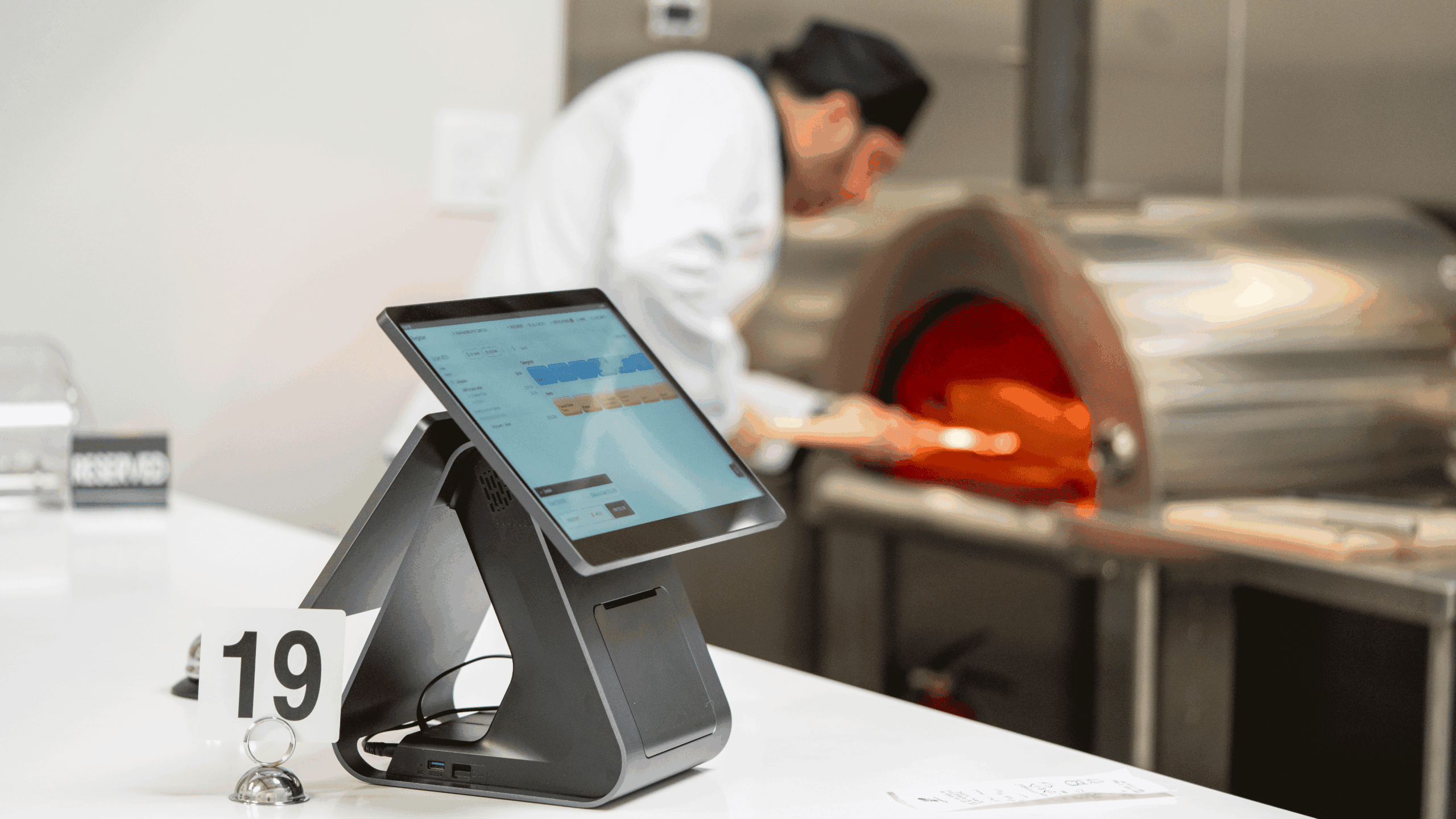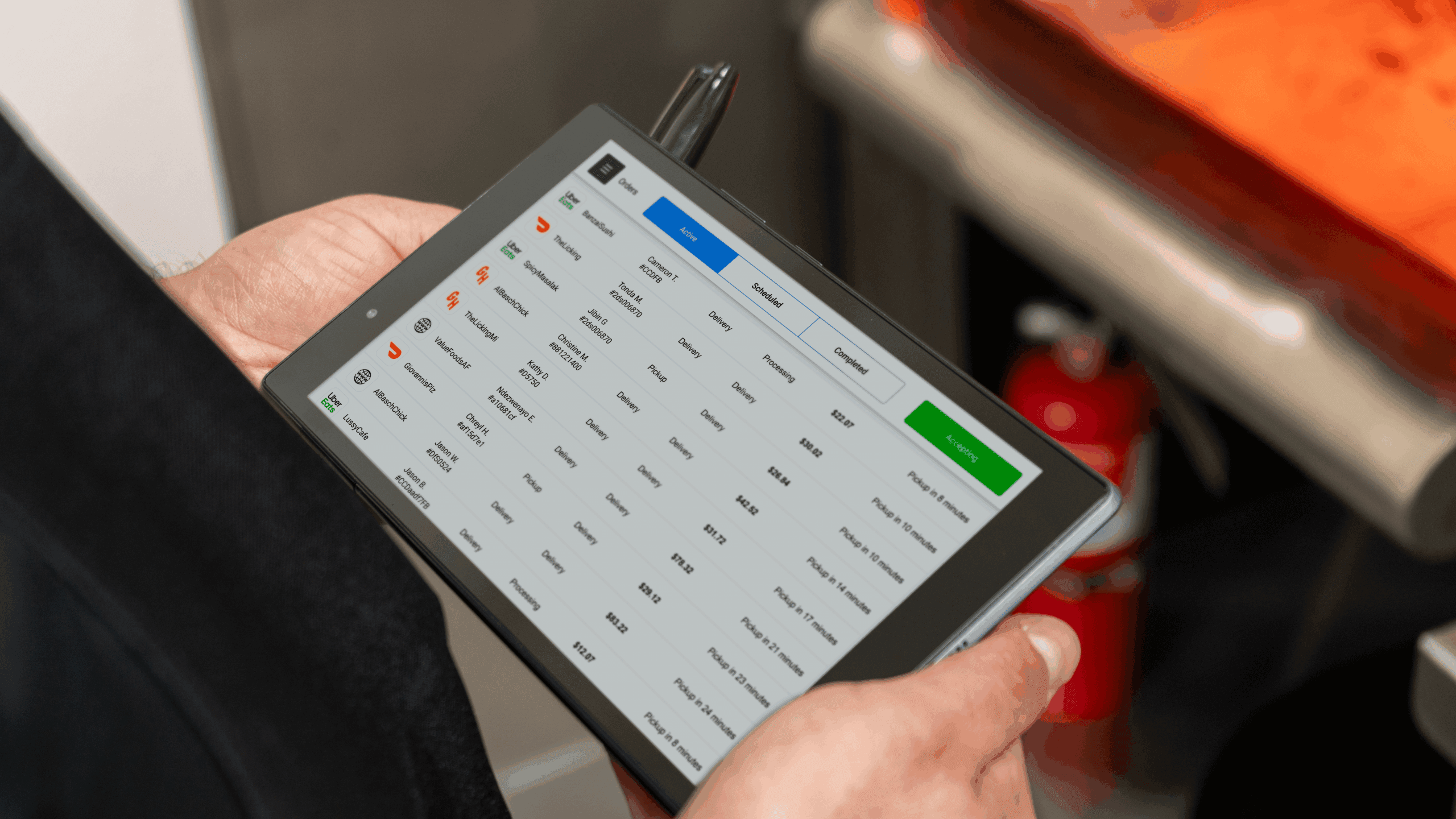- What’s an Independent Restaurant?
- What Are the Key Differences Between an Independent Restaurant and a Chain Restaurant?
- Pros of Opening an Independent Restaurant
- 5 Challenges that Independent Restaurants Can Face
How many restaurants pop up within a month in your city?
How many of those are chain restaurants?
Post-pandemic, many people think it’s simply too risky to open up a new business, let alone a restaurant.
Independent restaurants have always been a gamble. They are not part of a chain, so they don’t have the same built-in customer base. They also don’t have the buying power of a chain, so they often have to pay more for supplies.
And then there’s the marketing issue; it’s hard enough for a big chain to get noticed, especially in prime locations, let alone a small independent restaurant.
So why do people still open independent restaurants?
For the same reason people start any business: they have a passion for it. Perhaps they are an experienced chef, or simply someone who loves the food business.

They believe in their product and think they can make a go of it.
And some of them do.
Against all odds, some independent restaurants not only survive but thrive. They become popular destinations in their city or town and build a loyal following.
If you’re considering opening an independent restaurant, you need to be aware of the risks and be prepared to work hard to overcome them.
So if you’re up for the challenge, let’s get started and talk about the potential risks and what you can do to mitigate them.
What’s an Independent Restaurant?
An independent restaurant is a stand-alone eatery that’s not part of a chain.
It’s usually owned and operated by a single person or family, although it can be owned by a partnership or corporation.
Independent restaurants are also sometimes called mom-and-pop shops, small businesses, or local businesses.
What Are the Key Differences Between an Independent Restaurant and a Chain Restaurant?

The key difference between an independent restaurant and a chain restaurant is that an independent doesn’t have the built-in customer base or economies of scale that a chain has.
An independent relies on its own marketing efforts to attract customers, while a chain can rely on its brand recognition.
A chain also has more negotiating power when it comes to things like prices for supplies since they’re buying in bulk.
And if a chain restaurant location isn’t doing well, the company can simply close it down and open a new one somewhere else.
An independent restaurateur doesn’t have that luxury; if their business fails, they’re out of luck.
There are several advantages to opening an independent restaurant over starting a chain restaurant. Read on to find out what they are!
Pros of Opening an Independent Restaurant
Contrary to mainstream notions, independent restaurants have actually increased since 2021.
This means that there are opportunities for those who are willing to take the risk.
And there are several advantages to opening an independent restaurant over starting a chain restaurant.
1. You Have More Creative Control

As the owner of an independent restaurant, you have complete control over the concept, menu, decor, and ambiance. You can make your restaurant exactly what you want it to be without having to adhere to corporate guidelines.
You can also be more flexible with your menu, changing it as often as you like to keep things fresh.
And if you want to try something new, you can do it without having to get approval from a higher-up. You’re not beholden to corporate guidelines or restricted by what’s worked in the past.
You can really let your creativity shine and build a dining experience that’s completely unique.
2. You Can Develop a Strong Sense of Community
Because independent restaurants are usually local businesses, they have the opportunity to develop a strong sense of community.
You can become involved in the local Chamber of Commerce or sponsor little league teams.
You can get to know your customers and make your restaurant a gathering place for people in the area.
People are more likely to support a business they feel connected to, so this can be a big advantage.
3. You Might Make More Money in the Long Run
While it’s true that you’ll have more initial start-up costs and you might not make as much money in the short term, you could potentially make more money in the long run.
If your restaurant is successful, you won’t have to share the profits with a corporate parent company.
All of the money you make will stay in your pocket, which can lead to greater earnings down the road.
4. You Can Opt for Flexible Pricing
Another advantage is that you can be more flexible with your pricing. You’re not locked into the same menu price points as a chain restaurant.
For instance, if you want to offer a discount for people who come in during happy hour, you can do that.
Or if you want to offer a lunch special, you’re free to do so without worrying about whether or not it’s allowed by the company.
This flexibility gives you the opportunity to attract more customers and increase your profits. Plus, because you’re a small business, you may be eligible for government grants and other support that’s not available to big businesses.
Your Inbox, Your Rules!
Tailor your newsletter with the topics you're most interested in.
5 Challenges that Independent Restaurants Can Face
We went over the pros, but it’s important to be realistic and understand the challenges you might face as an independent restaurateur.
1. It Can Be Difficult to Stand Out from the Crowd
The restaurant industry is incredibly competitive, and it can be hard for an independent restaurant to stand out from the crowd, especially if there are already established chain restaurants in the area.
You’ll need to find a way to make your restaurant unique and attract customers who are looking for something different from the usual fare.
2. You Might Have difficulty Getting Financing
It can be difficult to get financing when you’re starting an independent restaurant because banks see them as high-risk investments.
This is especially true if you don’t have a lot of personal wealth or collateral to put down.
You can go for small business loans, but you’ll likely have to pay a higher interest rate. And these loans are typically used after you’ve already invested some of your own money into the business.
3. You Might Have difficulty Finding the Right Location
The location of your restaurant is important for its success, but it can be difficult to find the right spot.
You might have to compromise on your ideal location in order to get a space that’s affordable.
4. You’ll Need to Wear Many Hats
As the owner of an independent restaurant, you’ll need to wear many hats and be involved in all aspects of the business, from marketing to accounting to human resources.
If you’re not prepared to do all of this yourself, you’ll need to hire employees or consultants who can help you out.
5. You Might Have Difficulty Getting Supplies
Independent restaurants might have difficulty getting supplies because they don’t have the same buying power as chain restaurants.
This means you might have to pay more for ingredients and other supplies.
6. You Might Have difficulty Staying afloat During Slow Periods
Independent restaurants can have a hard time staying afloat during slow periods because they don’t have the same financial cushion as chain restaurants.
If you’re not careful with your finances, you could find yourself in debt or even out of business.
Tip: You can consider integrating delivery into your business
model to help make up for slow periods.

Nowadays, online delivery services make it easy for customers to get the food they want without leaving their homes.
If you don’t want to deliver yourself, you can partner with a delivery service like DoorDash or Uber Eats. This can help you increase your sales and reach a wider audience.
And luckily, there are platforms for independent restaurant that does a great job of cutting down costs while letting you reap the benefits of being on multiple delivery apps!
Planning to Start an Independent Restaurant
Starting an independent restaurant can be a great way to achieve your dream of owning your own business.
But it’s important to understand the pros and cons before you take the leap.
Weigh the advantages and disadvantages carefully to see if an independent restaurant is the right fit for you.
If you decide to go ahead with it, be sure to do your research and plan carefully to increase your chances of success!



